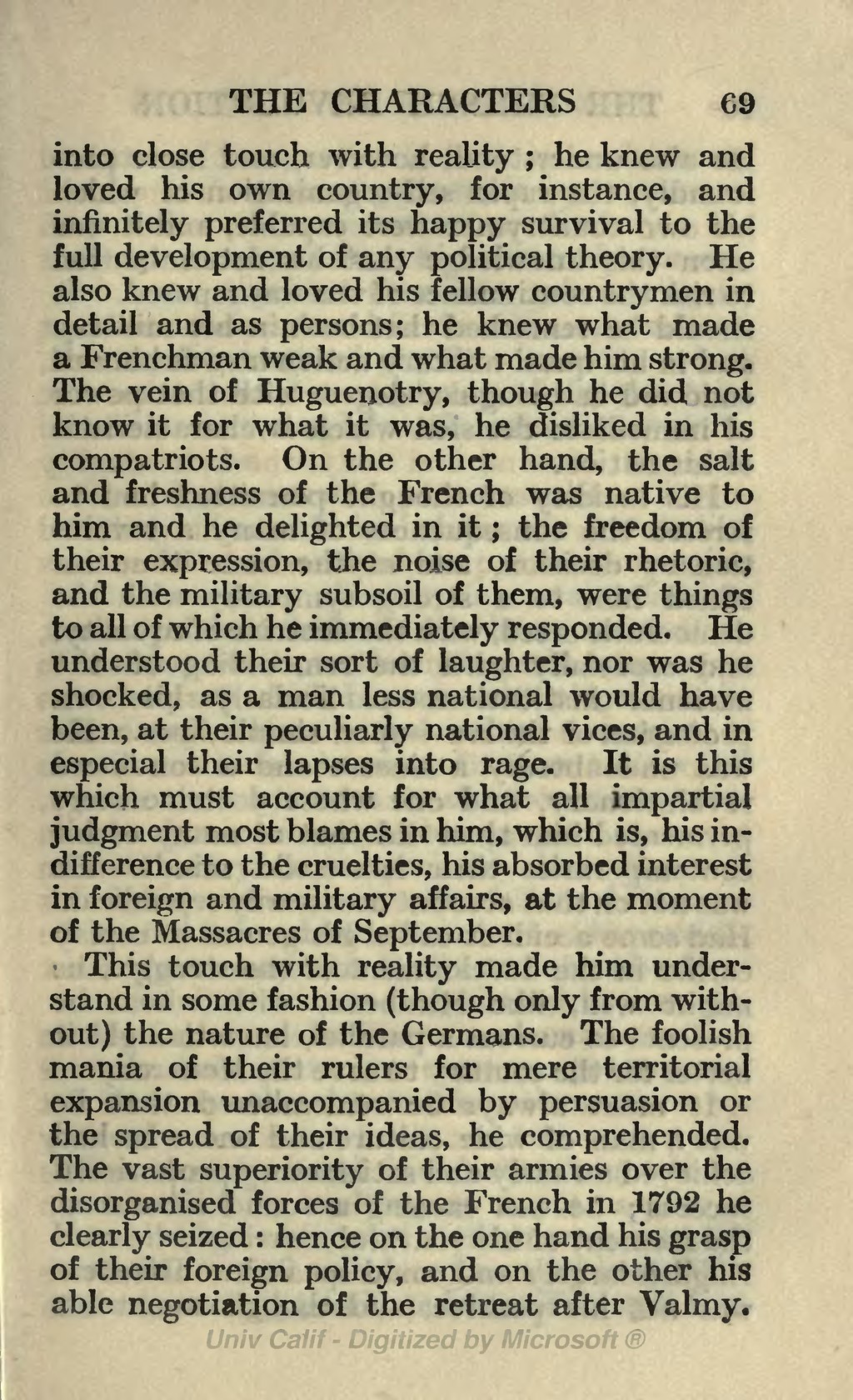into close touch with reality; he knew and loved his own country, for instance, and infinitely preferred its happy survival to the full development of any political theory. He also knew and loved his fellow countrymen in detail and as persons; he knew what made a Frenchman weak and what made him strong. The vein of Huguenotry, though he did not know it for what it was, he disliked in his compatriots. On the other hand, the salt and freshness of the French was native to him and he delighted in it; the freedom of their expression, the noise of their rhetoric, and the military subsoil of them, were things to all of which he immediately responded. He understood their sort of laughter, nor was he shocked, as a man less national would have been, at their peculiarly national vices, and in especial their lapses into rage. It is this which must account for what all impartial judgment most blames in him, which is, his indifference to the cruelties, his absorbed interest in foreign and military affairs, at the moment of the Massacres of September.
This touch with reality made him understand in some fashion (though only from without) the nature of the Germans. The foolish mania of their rulers for mere territorial expansion unaccompanied by persuasion or the spread of their ideas, he comprehended. The vast superiority of their armies over the disorganised forces of the French in 1792 he clearly seized: hence on the one hand his grasp of their foreign policy, and on the other his able negotiation of the retreat after Valmy.
